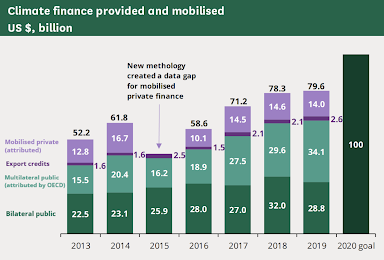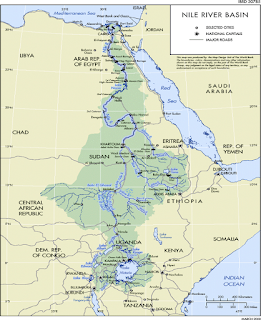COP27 and Africa
The COP27, which took place in Egypt, was the first climate conference since 2016 to be held in Africa, hosting almost 200 countries. The Egypt’s presidency of the COP27 focused on moving from negotiation of changes to combat climate change to implementation of them into the countries. The main goals were concentrated on the 4 main themes: Mitigation - to maintain 1.5 degree target and limit global warming below 2 degrees by implementing the Glasgow pact, Adaptation – to place global action on adaptation on the forefront following the 2015 Paris Agreement and the Glasgow pact, Finance – to provide transparency in the flow of finance to accommodate developing countries (particularly in Africa) and mobilise funds for achieving the Paris Agreement goals, and Collaboration – to ensure cooperation between governments, the private sector and civil society. (COP27 2022 Egypt)
This year, COP for the first time included water on the official agenda. As climate change affects the water cycle it has a direct effect on the droughts and flooding, making access to clean drinking water and water for agriculture even more difficult. The Action for Water Adaptation and Resilience (AWARE) initiative was introduced at the COP27 prioritising water loss and water access, water management on climate related adaptations and acknowledging the link between water and key climate goals.
Another initiative that focuses on creating at least 200 new water adaptation projects across 100 African nation within the next decade was also introduced at the COP27 known as the African Cities Water Adaptation Fund (ACWA). As many leaders attending the COP have brought to light the fact that severe droughts are impacting the Horn of Africa, leading to many people having limited access to clean water and putting them at risk of starvation.
Despite these initiatives, many of them are to be funded by developed countries. As developing countries call for climate justice, only a small number of Western countries have agreed to provide the loss and damage funds that would go towards climate change adaptations, such as for Mozambique after experiencing dreadful loses due to extreme rainfall. This brings arguments about climate compensation, creating strain between developing and developed countries over the financial matters. Showing that even when countries come together to resolve global issues, politics play more important role on the decisions achieved by the representatives at the COP than the lives of so many that suffer due to the global warming that was predominantly caused by the industrial nations, using fossil fuels to enrich themselves.
It is concerning to see how little COP27 has contributed to solving the water crisis in Africa. Despite efforts to implement new initiatives and projects to counter the growing crisis of extreme droughts and floods, the actions are taking too slow and there is no guarantee that the goals set during COP27 would be achieved. If previous COP meetings serve as an example, it is clear that they would rather be producing ‘screaming’ headlines and empty promises, such as the 2015 Paris agreement (which is not enough to prevent rising in global temperatures) or the target to deliver 100 billion dollars of climate finances by 2020 (which was not met), rather than taking immediate direct action to battling the growing climate crisis.




Comments
Post a Comment